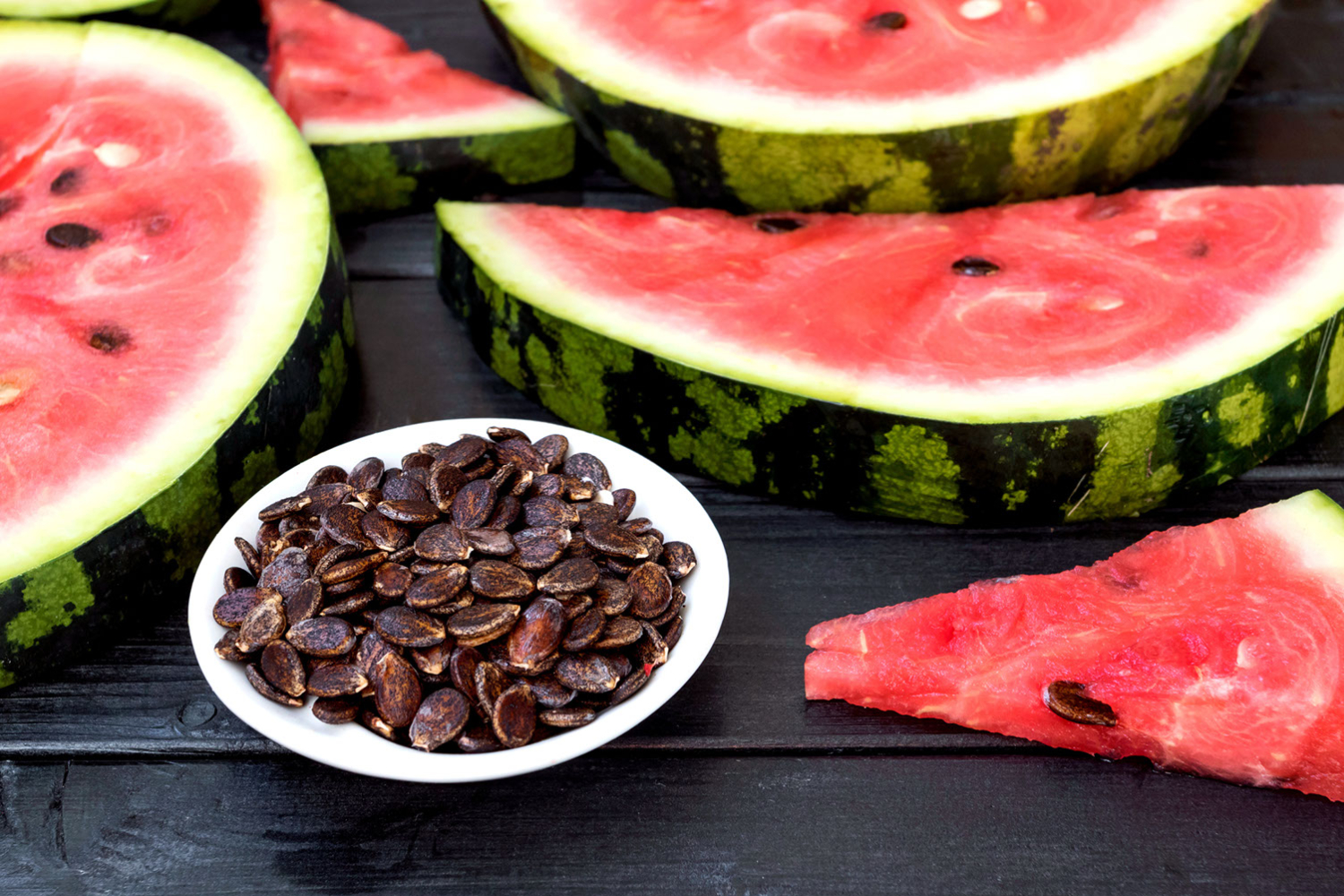Can You Eat Watermelon Seeds—or Should They Be Tossed Out?
The answer is yes—and they're good for you, too!

Published
There are few snacks more refreshing than a slice of watermelon. And though the fruit's hydrating and brightly-colored flesh gets the bulk of the attention, it turns out that there's another benefit hiding in plain sight: the often ignored seeds. But, can you eat watermelon seeds?
Can You Eat Watermelon Seeds?

Yes, you can eat watermelon seeds—and they’re good for you, too.
If you've been going seedless, you've been missing out! Watermelon seeds boast a number of health benefits: They're a good source of healthy fats, contain zinc to aid digestion, and are a source of iron and magnesium. Plus, they're a low-calorie snack.
By saving your seeds rather than tossing them or spitting them out, you can get the most out of your watermelon and limit your food waste in the process. Given that 108 billion pounds of food are wasted each in the United States alone, this idea is an important seed to plant.
Here, a simple recipe for roasted watermelon seeds courtesy of That Salad Lady, who shared the how-to on TikTok. Once cooked, watermelon seeds make an ideal addition to salads and soups and even function as a standalone snack.
How to Roast Watermelon Seeds

Ingredients:
1 cup watermelon seeds
2 tsp salt
Avocado oil
2 tsp salt
Avocado oil
Instructions:
1. Place seeds into a colander and rinse well, removing any light seeds and excess flesh.
2. Spread seeds in an even layer in a flat dish and let dry in the sunlight.
3. Add dried seeds to a skillet and stir in a cup of salted water. Cook on medium/high until all water dissolves.
4. Coat seeds in avocado oil and spread in an even layer over a baking mat.
5. Roast at 350 degrees for 8-10 minutes. Let cool and enjoy!

5 Simple Ways to Keep Apples Fresh for Longer
Learning how to keep apples fresh is easy. Use these simple tips to keep your favorite fruit around for longer.

6 Simple Ways to Keep Tomatoes Fresh for Longer
Sick of rotten tomatoes? Here are six easy ways to keep your tomatoes fresh for longer, saving you money and reducing waste.

6 Simple Ways to Keep Bananas Fresh for Longer
Bananas seem to turn brown overnight. Here's exactly how to keep bananas fresh for longer to prevent food waste and save money.

